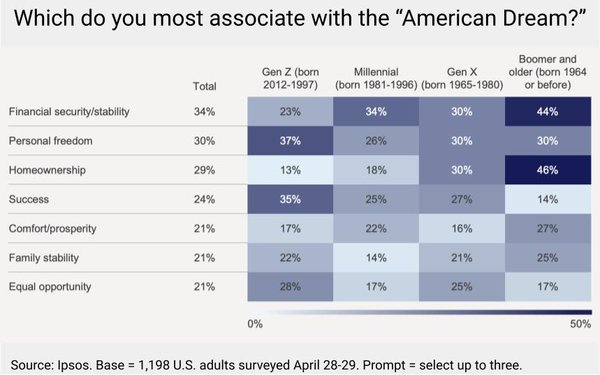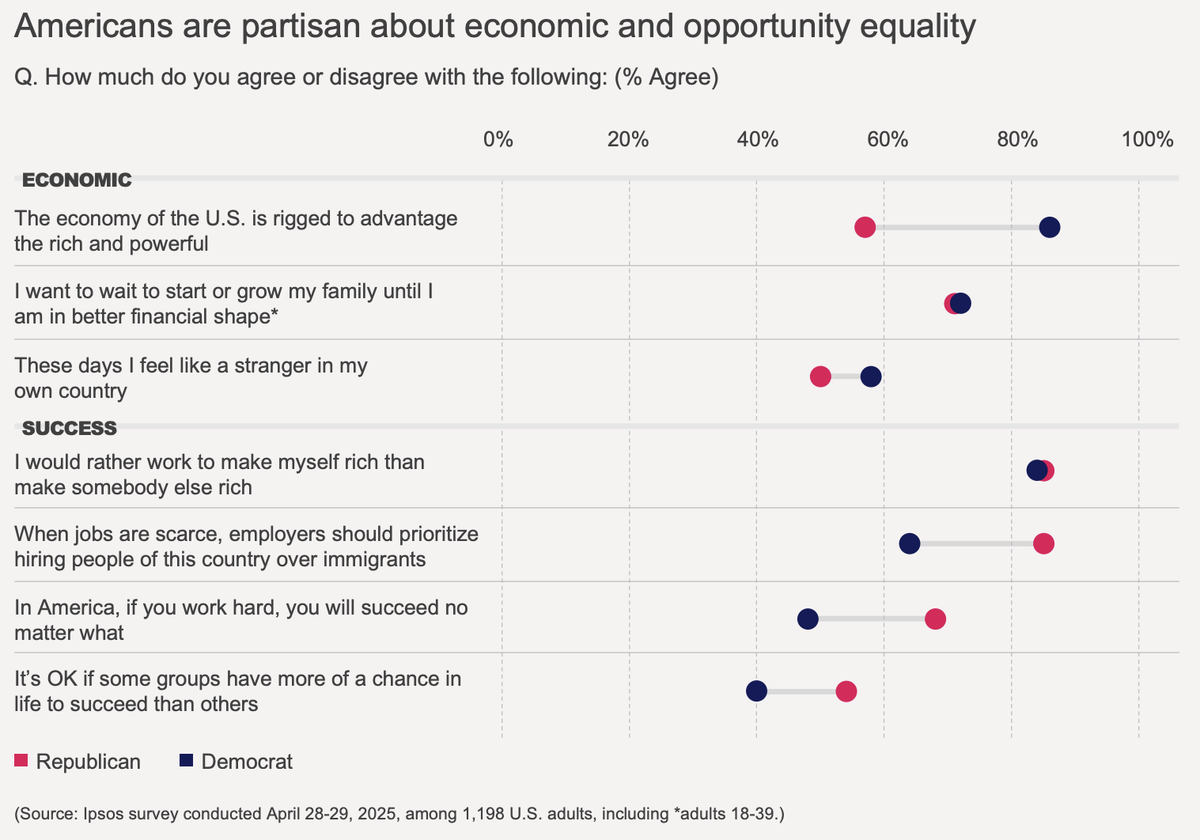
Kudos to the team at Ipsos, which has been conducting a series
of ongoing research studies to help marketers, agencies and some trade press reporters understand the "new America," including a just-released analysis asking those new -- and old -- Americans to
define what the "American dream" means to them.
The findings are as multivariate as the methods Ipsos used to conduct it, meaning that it is not exactly a dream consensus.
On the top
line, Ipsos simply asked a cross-section of American adults to associate what concepts they associate with the American Dream, and as you can see above, it means different things to different
segments.
Drill into the report "What The Future: American Dream" for yourself to see how
other segments, including ethnicity, influence what Americans dream of, but remarkably -- "personal freedom" ranked No. 1 among Gen Zers, and only for about a third of them.
advertisement
advertisement
"Home ownership"
still is the top dream among older Americans, as is financial security, but as you thumb your way through the report you will notice there is no single unifying element defining the American dream.
Kind of like American politics overall.
And while a majority of all respondents said they believe "Democracy is essential to having personal freedom," more than a third of young American
adults (18-34) indicated not so much.
Not surprisingly, there are some partisan politics shaping the dream too, especially when it comes to economic and opportunity equality.

As for the future of the American Dream, the Ipsos
analysis suggests it's already being influenced by the outcomes of elections.
"The American Dream sits at a bit of a crossroads. Currently, one of the best examples of turning foresight into
action is the Heritage Foundation’s Project 2025. The document lays out a vision for the American Dream under the current administration," the Ipsos team writes, adding: "Many of its authors
were appointed to key roles in the Trump administration and many of the policies enacted in the first 100 days follow the playbook. It’s a vision of small government and loose regulation where
business, especially small business, can thrive, bringing prosperity.
"Policies are aimed at shifting from our current knowledge and service economy back to one focused on manufacturing.
Another Project 2025 goal is reversing a decades-long decline in the birth rate. That leads to personal implications as well. Some proposals indicate a shift back to single-income households where men
do the earning and women take care of the homes and children. The manufacturing jobs themselves would shift. Robot-led automation will do the real work. Humans will take care of the robots.
"Democrats have been less successful in articulating theirs, but they tend to focus on gender equality, fairness, responsible regulation, technological advancement and global cooperation rather
than a more nationalistic approach.
"These two visions aren’t necessarily at odds with one another. They open a host of plausible scenarios that businesses and leaders need to be
planning for. Understanding the Dream is one major component of Knowing the New America for this generation and generations to come. As you’ve seen, it’s complicated and requires a lot of
intention and a lot of attention to your patients, customers and voters."